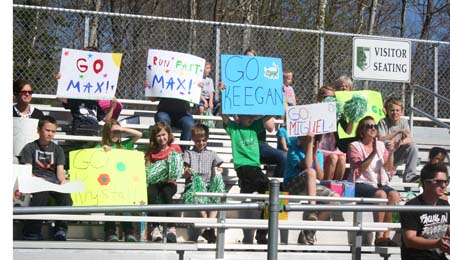Finance committee discusses revising room tax ordinance

Proposed language would change allocations, marketing committee membership
BY KEVIN BONESKE
REPORTER/PHOTOGRAPHER
Rhinelander’s Finance, Wage and Salary Committee is considering possible changes to the city code as it relates to the area’s accommodation tax, such as for how the tax is distributed and who would be members of the Rhinelander Tourism Marketing Committee which oversees allocations from the tax.
Finance Committee members discussed a draft of revisions for the applicable city code that interim city administrator Keith Kost distributed at Tuesday’s meeting.
As drafted, the code would be changed to eliminate the city receiving an administrative fee equal to 3 percent of the total room tax collected annually within the city of Rhinelander. The percentage allocated to the city for the cost of maintenance and improvement of recreational facilities and promotional projects would also be reduced from 35 to 30 percent.
While 40 percent would continue to be allocated to the Rhinelander Tourism Marketing Committee to support a destination marketing program serving the Rhinelander area, as well as 17 percent to the Rhinelander Area Chamber of Commerce for Visitor Center operations and 5 percent to the Rhinelander Tourism Marketing Committee in support of local community organizations and programs, the drafted revisions call for allocating 8 percent to city-designated marketing.
Finance Committee chairman Mark Pelletier informed the committee that the previous room tax contract expired at the end of last year.
“I don’t think there’s any rush on any of this, but this needs to be looked at to get things rolling, at least,” Pelletier said.
After committee member Sherrie Belliveau raised her objections about how the drafted language would change the allocations, committee member Alex Young noted a change in state law prohibits an administrative fee for room tax collections.
“Some of the (allocation) percentages in there reflect the new statutory language also that we now have to do this,” Young said. “There’s a couple moving parts here. No. 1, you’ve got the contract between the city and the other parties that governs this that I guess has expired. And No. 2, you’ve got our actual ordinance that spells out who these representatives are (on the Tourism Marketing Committee).”
Young also raised the issue of transparency, given the Tourism Marketing Committee is considered a tourism commission under state law with the members appointed by the mayor.
“If that’s true, I do have the ongoing concern that I don’t see the financials, I don’t see the minutes, I don’t see the agendas – they’re not on the City Hall calendar, they’re not sent out by email like every other city committee,” he said. “And that kind of bothers me that I’m making decisions on things I don’t get to see the information behind it.
“It may be working really well – tough for me to say that when I don’t get to see the financials, the agendas or the minutes.”
Pelletier said the language in the ordinance defined the Tourism Marketing Committee as a chamber committee when it is actually a city committee.
Belliveau agreed the Tourism Marketing Committee is a city committee and should be subject to the requirements of the state’s Open Meetings Law.
“I think it has to be that way,” she said. “I mean, anybody who sits on that committee is the one whose butt’s on the line if something goes wrong.”
City attorney Carrie Miljevich said a room tax committee, which is created by one or more municipalities, is a municipal committee instead of a chamber committee.
In addition to revising the accommodation tax ordinance to reflect changes in state law, Young said the local room tax contract needs to be changed.
“We need to establish in that contract who is going to be responsible for making sure that these things get posted and distributed and sent out to everybody, so we’re all on the same page,” he said.
Pelletier, who is on the Tourism Marketing Committee as the chairman of the city’s Finance Committee, noted language revisions as to who could be on the Tourism Marketing Committee would allow the mayor, who is a non-voting member, and chamber president or another officer, not just the treasurer, to be voting members.
“It was too fine tuned that it became impossible to get a quorum sometimes,” he said.
Committee members agreed with a suggestion from Kost to have Miljevich meet with chamber executive director Maggie Steffen to put together a new proposed room tax contract that could be brought back to the Finance Committee for its consideration next month.
Leave a reply
You must be logged in to post a comment.





